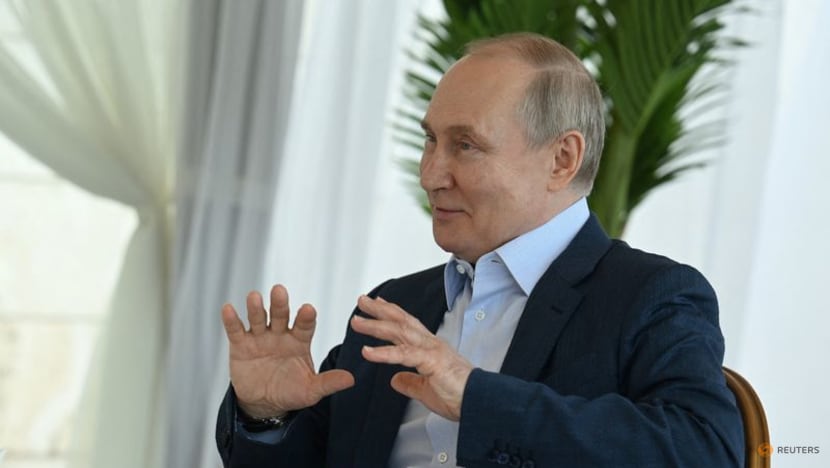MOSCOW: Russia will start deploying tactical nuclear weapons in Belarus after special storage facilities are made ready on Jul 7 to Jul 8, President Vladimir Putin said on Friday (Jun 9), Moscow's first move of such warheads outside Russia since the fall of the Soviet Union.
Putin announced in March he had agreed to deploy such weapons in Belarus, pointing to US deployment of tactical nuclear weapons in a host of European countries over many decades.
"Everything is going according to plan," Putin told Belarusian President Alexander Lukashenko, discussing the planned nuclear deployment over a meal at the Russian leader's summer retreat in the Black Sea resort of Sochi.
"Preparation of the relevant facilities ends on Jul 7 to Jul 8, and we will immediately begin activities related to the deployment of appropriate types of weapons on your territory," Putin said, according to a Kremlin transcript of his remarks.
Lukashenko said: "Thank you, Vladimir Vladimirovich."
More than 15 months into the biggest land war in Europe since World War II, Putin says the United States and its Western allies are pumping arms into Ukraine as part of an expanding proxy war aimed at bringing Russia to its knees.
Putin, 70, casts the war as a battle for Russia's own survival in the face of what he says is an ever-expanding NATO. He has warned the West that Moscow will not back down.
Ukrainian President Volodymyr Zelenskyy says Ukraine will not rest until every last Russian soldier is ejected from his country, which he wants to join NATO as soon as possible.
Putin's nuclear move is being watched closely by both the United States and its NATO allies in Europe and by China, which has repeatedly cautioned against the use of nuclear weapons in the conflict.
The United States has criticised Putin's nuclear deployment but has said it has no intention of altering its position on strategic nuclear weapons and also that it has not seen any signs Russia was preparing to use a nuclear weapon.
The war in Ukraine has triggered what both Moscow and Washington says is the deepest crisis in relations since the depths of the Cold War, with major nuclear arms control treaties unravelling and both sides denouncing the other in public.
